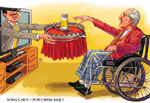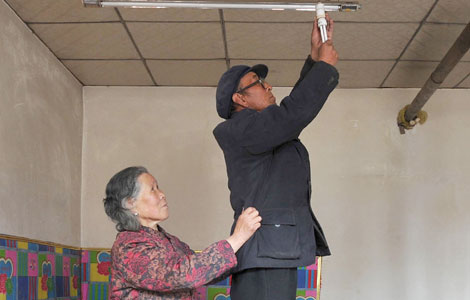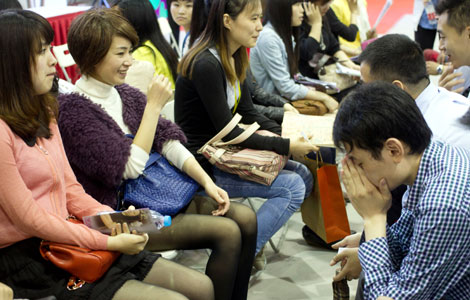China slams Japan's criticism of Li's speech
Updated: 2013-05-28 19:24
(Xinhua)
|
|||||||||||
BEIJING - Foreign Ministry spokesman Hong Lei on Tuesday criticized a Japanese politician's remarks that Chinese Premier Li Keqiang's speech in Germany "ignored history".
On Sunday, Li visited Cecilienhof Palace in Potsdam, capital of the German federal state of Brandenburg, the site of the Potsdam Proclamation in 1945, which set the terms for Japan's surrender in World War II.
He said that all the territories Japan stole from China, such as Northeast China, Taiwan and related islands, should be restored to China.
On Monday, Japan's Chief Cabinet Secretary Yoshihide Suga rebutted Li's claim, saying, "That remark ignores history. (Japan) can never accept it."
Foreign Minister Wang Yi, who is in Berlin accompanying Premier Li Keqiang on his trip to Europe, has stated China's solemn position on Suga's remarks, said Hong.
Hong reiterated that in modern times, Japanese militarists launched an aggressive war against China and illegally occupied and stole Chinese territories, including Taiwan and its affiliated islands.
"These historical facts should not be obliterated," he said.
In 1945, Japan announced its acceptance of the Potsdam Proclamation as well as its unconditional surrender.
Article 8 of the Potsdam Declaration makes it clear that the terms of the Cairo Declaration shall be carried out.
In December 1943, leaders of the United States, Britain and China signed the Cairo Declaration, declaring that all the territories Japan had seized from China should be returned.
In the China-Japan Joint Statement issued in 1972, the Japanese government also promised to earnestly implement Article 8 of the Potsdam Declaration.
"These are unmistakable historical facts," Hong said.
He asked the Japanese side to face history squarely, clarify and correct relevant statements and never again make remarks that lack common sense.
Related Stories
Li concludes four-country visits 2013-05-28 15:45
Li: China's development chances for the world 2013-05-28 03:05
Li salutes Schmidt's efforts for bilateral ties 2013-05-28 02:58
Li arrives in Switzerland for first EU trip 2013-05-24 09:56
Li hopes for more fruits in friendship with Pakistan 2013-05-24 01:18
Li calls for substantial progress in Sino-Indian ties 2013-05-20 18:19
Today's Top News
DPRK urges ROK to start talk on Kaesong issue
Ambassador calls for dialogue on trade disputes
Aussie PM rebuts China hacker claim
Sudan threatens to stop S. Sudan's oil exports
China urges civilized acts of tourists
China investor in bid for Club Med
President Xi calls for 'new' type of relations
Li paves way for German investors
Hot Topics
Lunar probe , China growth forecasts, Emission rules get tougher, China seen through 'colored lens', International board,
Editor's Picks

|

|

|

|

|

|






